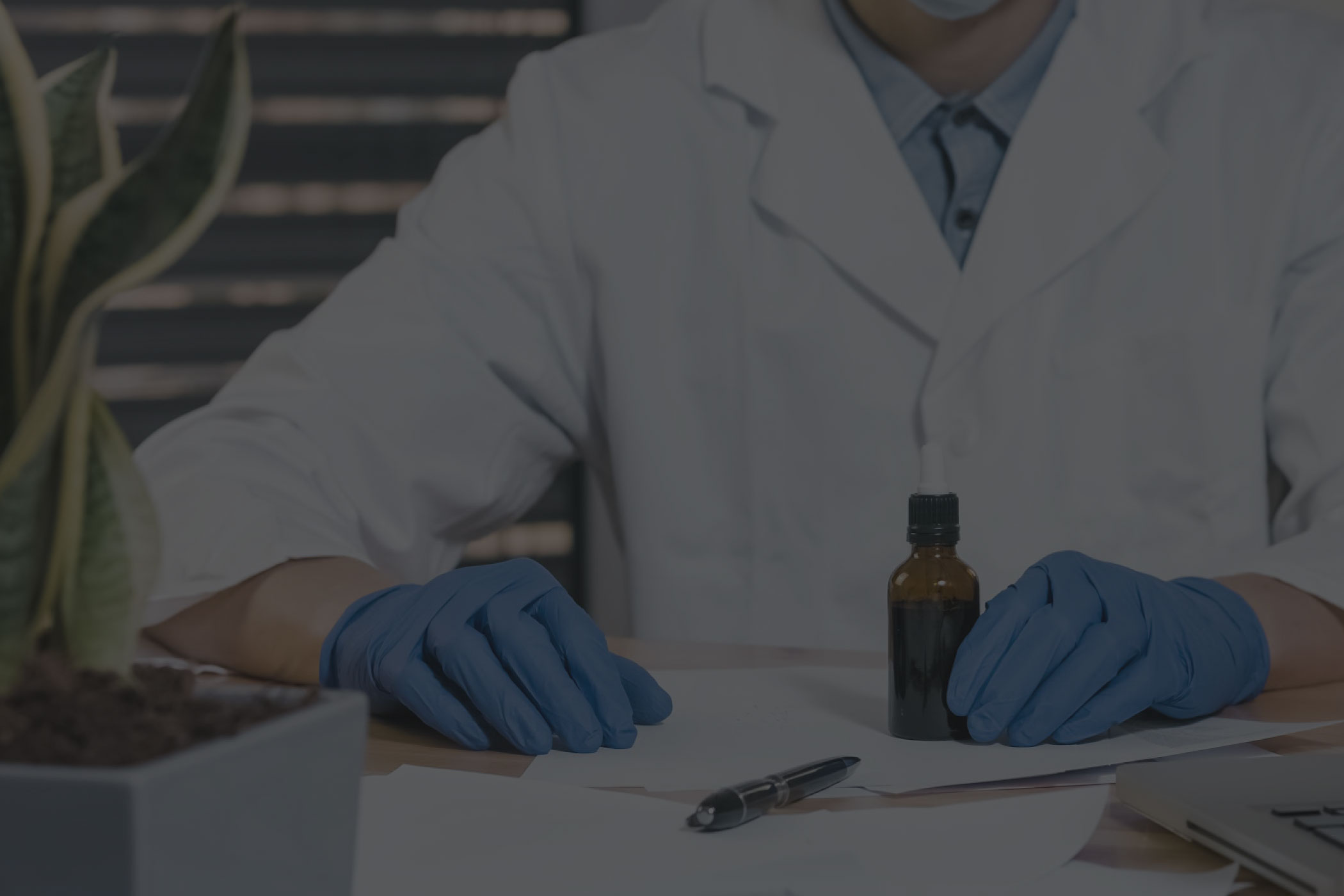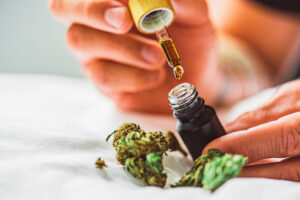Cannabis research has resulted in exciting discoveries in cannabis science and human biology, and has also led to a bigger focus on cannabinoids. THC (tetrahydrocannabinol) and CBD (cannabinidiol) have become familiar to a much wider audience in the past years, but they are not the only cannabinoids found in the cannabis plant. CBG (cannabigerol) is a lesser-known cannabinoid that is distinct from THC and CBD, with unique properties and potential for medical use in particular.
CBG vs. CBD: What’s the Difference?
Cannabigerol (CBG) and cannabidiol (CBD) have many properties in common, but are distinct cannabinoids. Like CBD, CBG is not psychoactive and does not produce a “high” like THC. Notably, CBG is a precursor for other cannabinoids like CBD, THC, cannabichromene (CBC), among numerous others. As compared to CBD and THC, there is a smaller body of research about CBG, but we can expect more in the coming years.
A significant difference between CBG and CBD is their relationships with cannabinoid receptors and the endocannabinoid system. CBG interacts directly with CB1 and CB2 receptors in the brain, while CBD interacts indirectly with the endocannabinoid system. Both CBG and CBD are most common in low-THC cultivars, like hemp.
CBG has not been tried in clinical trials, but it has shown promise as a medical treatment for a wide range of diseases for its anti-inflammatory, antibacterial, and pain killing properties, among others.
How is CBG Produced?
CBG can be found at low levels in most cannabis strains, and is considered a “minor cannabinoid.” Cannabis plants produce cannabigerolic acid (CBGA), which serves as a precursor to other cannabinoids, including THC and CBD. Enzymes within the cannabis plant can break down CBGA to yield THC or CBD. Generally, CGBA is converted into THC or CBD, but cannabis cultivators can yield more CBG through selective breeding and crossbreeding plants. CBG can be extracted by targeting high-CBG yield extraction times, often around two months into a flowering cycle.
That said, no two cultivars are identical, so timeframes and extraction methods vary by cultivar.
Potential Medical Benefits of CBG:
Cannabis re-entered legal public life through medical use after decades of criminalization. As more states relax restrictions on legal medical and adult use, more research has gone into the medical efficacy of cannabinoids in alleviating symptoms and treating complex illnesses. The discovery of the endocannabinoid system has revealed a universe of science regarding the interplay between cannabinoids and human biology, along with its important role in homeostasis. From terpenes and the entourage effect to medical applications of cannabinoids to alleviate symptoms of various diseases, cannabis has shown great potential for medical applications.
CBG has not been as thoroughly explored as THC and CBD, but has already shown to interact with specific physiological systems and problems, and shows great promise when it comes to treating the following diseases and conditions:
1. Glaucoma & Intraocular Pressure Relief
Glaucoma was one of the earliest conditions treated by cannabis in the modern era. The human eye contains a wealth of endocannabinoid receptors, and CBG shows even greater efficacy in relieving symptoms than THC. CBG has been shown to be especially effective when it comes to treating intraocular pressure, one of the greatest discomforts of glaucoma. In addition to aiding vasodilation and relieving pressure within the eye, CBG also serves as a neuroprotective.
2. Antibacterial Effects
CBG has various antibacterial properties and shows tremendous promise in treating MRSA. More than conventional drugs and treatment, CBG oil targets bacterial cell membranes to eliminate Staphylococcus and MRSA. Some research suggests narrow leaf cannabis varietals produce cannabinoids to combat pathogens in nature, which suggests CBG and other cannabinoids could serve as a potent antibacterial component in future antibiotics.
3. Anti-Inflammatory Effects
As a similar benefit to antibacterial efficacy, CBG has shown promise in reducing inflammation. Several animal tests found that CBG served as an anti-inflammatory treatment for mice, and studies have found potential medical implications for CBG as a treatment of inflammatory bowel disease and other gastric inflammation conditions.
4. Combatting Huntington’s Disease
In a 2015 study entitled “Neuroprotective properties of cannabigerol in Huntington’s disease: studies in R6/2 mice and 3-nitropropionate-lesioned mice,” researchers concluded CBG protected neurons in mice living with Huntington’s disease. This research suggests CBG could have a future in treating Huntington’s disease in humans, and may have efficacy as an inhibitor to nerve cell degeneration in the human brain.
5. Combatting Cancer
Just as CBG has impeded the growth of bacteria and inflammation, CBG has been shown to stop or slow the growth of cancer cells. In one study, CBG hampered the development of colorectal cancer cells in mice, which slowed the growth of colon cancer. Though more research is needed, this study shows significant potential for CBG as a colorectal cancer treatment.
6. Mood Stabilization
Among the most interesting research developments in cannabis science is CBG’s role in mood stabilization. Several studies and researchers have found CBG to be among the cannabinoids that prevent serotonin and GABA uptake in the brain, which could prove beneficial in the treatment of mood disorders, such as:
- Clinical depression
- Post-traumatic stress disorder (PTSD)
- Bipolar disorders (also called manic-depressive illness)
- Anxiety disorders
- Obsessive-compulsive disorder (OCD)
These developments in mental health research are exciting, but relatively new. Before we can expect CBG products prescribed for mental health treatment, it will take years of clinical trials and rigorous testing for conclusive benefits.
Talk to An Expert Before Using CBG
Though CBG shows great promise as a treatment for a variety of medical conditions, the science is relatively young. Self-medicating for conditions and diseases can be risky, so we always advocate talking to a physician or mental health professional before experimenting with cannabinoids.
We would recommend authoritative diagnoses, consultations with cannabis science experts, and getting a medical card before delving into the world of CBG as a treatment. There is a difference between staying informed on the science of cannabinoids and experimenting with your own health, and the best policy is to err on the side of caution when it comes to health and wellness.
If you are looking to discuss your medical cannabis options, Happy Valley has a consultation room at both of our Gloucester and East Boston locations to ensure your cannabis experience aligns with your expectations. Contact Happy Valley to learn more about private consultations and medical cannabis options, and be sure to subscribe to our newsletter at the bottom of the page for further updates.




